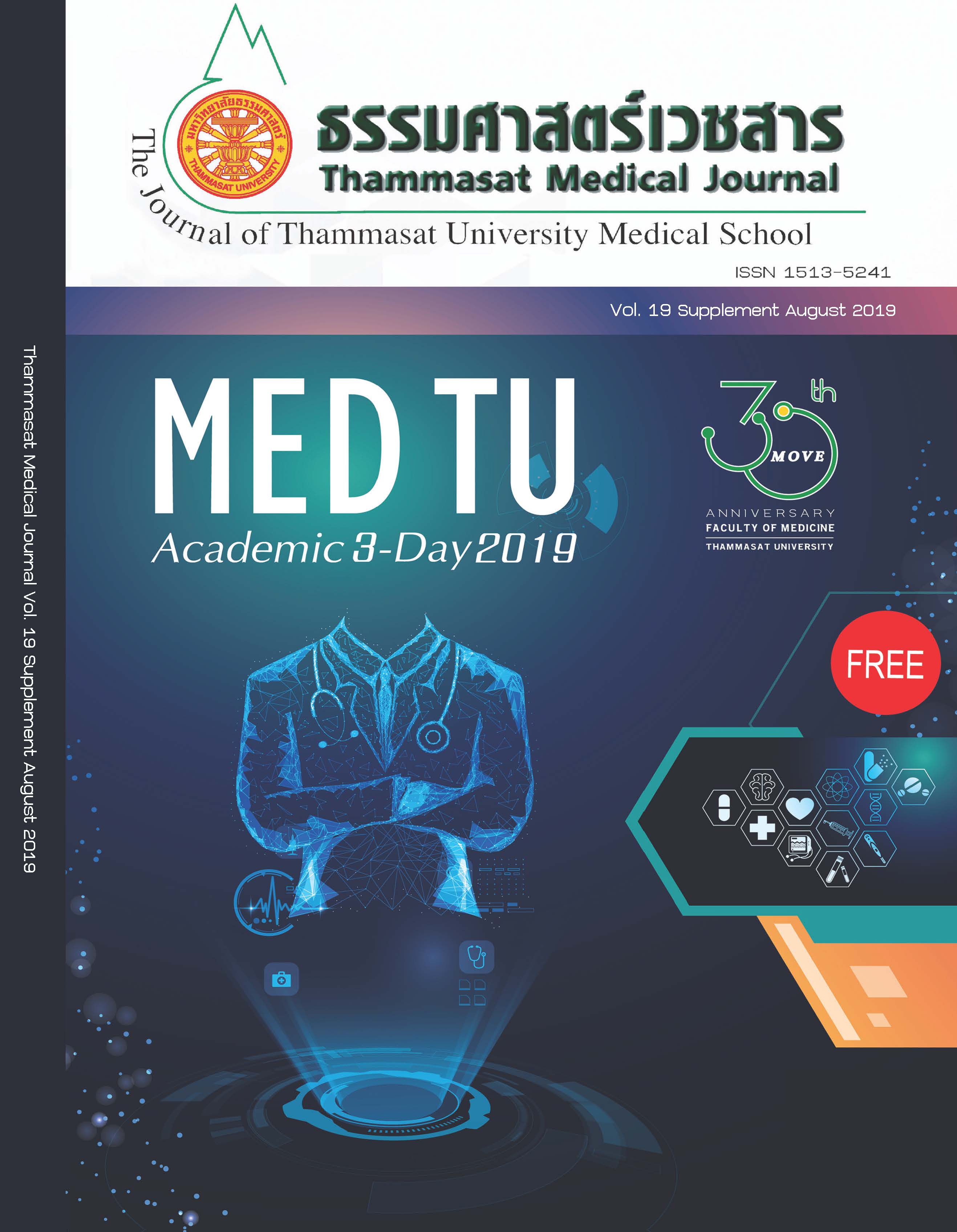Prevalence and Associated Factors of Burnout Syndrome in Preclinical Medical Students,Thammasat University
Keywords:
Prevalence, associated factors of burnout syndrome, burnout syndrome, medical studentsAbstract
Introduction: Burnout syndrome is a prolonged response to emotional and interpersonal stressors from work. This research aimed to study about the burnout syndrome and its related factors in preclinical medical students at Thammasat University.
Methods: A cross-sectional study was conducted using the Maslach Burnout Inventory-Student Survey (MBI-SS) which was given permission to utilize and translate by Professor Wilmar B. Schaufeli.
Results: Based on 79% (402) of all participants, the research found that the majority of the second-year medical students had high levels of emotional exhaustion and cynicism while a high level of professional efficacy was detected in the majority of the third-year students. The most related factor in the emotional exhaustion aspect were suffering from the feeling of being under
pressure and the upcoming national license examination. In cynicism, main problems were lack of motivation and wanting to quit the medical school. The intention to resign, along with relationship with colleagues, was also the most relevant factor in professional efficacy aspect. The male had higher level of cynicism than the female and those who had failed an exam
had significantly higher level of emotional exhaustion and cynicism than those who had not.
Conclusion: The most number of medical students having burnout syndrome is among the second-year students, with the personal factors being gender and failing an exam. The most related factors in all preclinical-year medical students are lack of motivation, inadequate adaptation to medical school learning style and the intention to resign from medical school.



